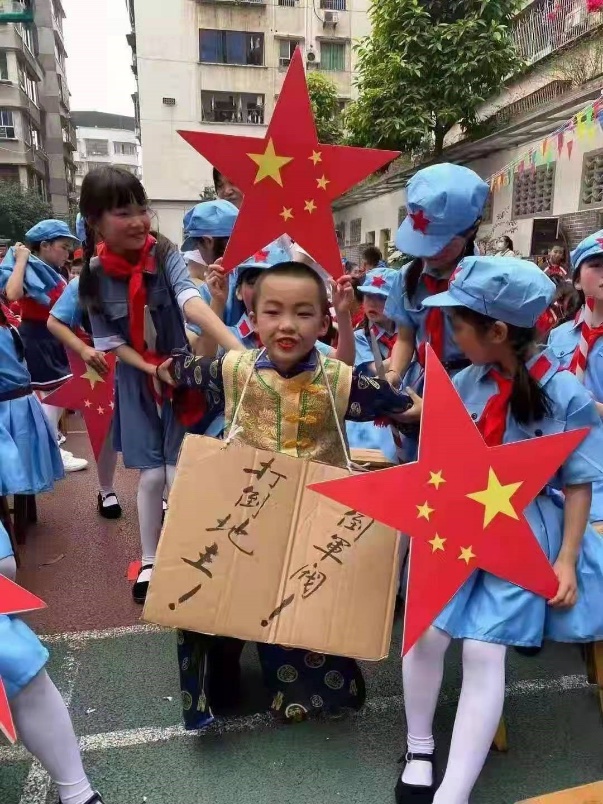Archive for Language teaching and learning
Absence of language study in humanities programs
Tweet from Bryan Van Norden:
My sense is that most doctoral programs in philosophy in the US have abandoned language requirements. This reflects the mistaken beliefs that the history of philosophy and contemporary philosophy outside the Anglophone world are worthless. https://t.co/hX8uIyQHXj
— Bryan W. Van Norden (@BryanVanNorden) July 11, 2021
Read the rest of this entry »
Spoken Classical Chinese
Tom Mazanec saw an announcement of a course in Hong Kong, in which the teacher, Dr. Lai Chi Fung 黎智豐, proposes to teach Classical Chinese by focusing on vocabulary for everyday use, just as if one were learning a foreign language. So you learn greetings, introductions, and the like. The idea intrigued Tom, especially since the language of instruction is Cantonese (which would make spoken Classical a little more intelligible than if it were in Mandarin).
If the course were taught in Mandarin, I think it would be a big flop, but since it is being taught in Cantonese, there is a somewhat higher possibility of limited, meaningful spoken communication. Cantonese preserves more features (phonological, lexical, grammatical, syntactical) of earlier stages of Sinitic than does Modern Standard Mandarin (MSM). Just in terms of phonology, Cantonese has more than 2,200 possible different syllables, almost twice as many as MSM (source).
Read the rest of this entry »
The importance of translation for learning Literary Sinitic
After reading "Bad poetry, bad translation" (6/18/21), Zihan Guo wrote:
Thank you for sharing this post.
While reading it, its comments, and all the selected readings related to it, I could not help but feel that translating classical Chinese poetry is the way to make sure one really understands it. Back in middle school and high school in China, my teachers would teach poetry and prose through paraphrasing, making them coherent narratives. However, adding things is as detrimental as its opposite. It was not until college that I started to truly appreciate classical Chinese poetry, through producing English translations myself, struggling with its syntactic concision and lack of precision, squeezing meanings from diction and speculating moods from imagery.
Read the rest of this entry »
Bringing back the Cultural Revolution — in English
As part of the run-up to the celebration of the 100th anniversary of the Chinese Communist Party (CCP) that will take place in July, scenes like this are increasingly common on the streets of the PRC:
Read the rest of this entry »
How much language capability does a Green Beret need to have?
In War on the Rocks (5/26/21), Tim Ball has an informative, thought-provoking article: "Talking the Talk: Language Capabilities for U.S. Army Special Forces". It begins:
In the mid-2000s, a series of U.S. Army Special Forces recruiting posters began appearing on Army installations across the country. One particular poster prompted more than a few eye rolls and laughs from the Special Forces community (commonly known as the Green Berets). The poster showed a Special Forces soldier conducting a military free-fall parachute jump. The caption stated, “The HALO [high altitude, low opening] jump wasn’t the hard part. Knowing which Arabic dialect to use when I landed was.”
From a recruiting standpoint, the poster hit all the marks. It took the excitement of a commando-style free-fall jump, combined it with the lesser-known expectation for a Green Beret to be a culturally adept warrior, and pushed it over the edge by portraying the jumper as a suave polyglot, capable of switching in and out of complex dialects at will.
Read the rest of this entry »
Difficult tongues
Johnson, in the Economist (5/7/21), has an enjoyable article: "Some languages are harder to learn than others — but not for the obvious reasons".
Here's the first part of the article:
When considering which foreign languages to study, some people shy away from those that use a different alphabet. Those random-looking squiggles seem to symbolise the impenetrability of the language, the difficulty of the task ahead.
So it can be surprising to hear devotees of Russian say the alphabet is the easiest part of the job. The Cyrillic script, like the Roman one, has its origins in the Greek alphabet. As a result, some letters look the same and are used near identically. Others look the same but have different pronunciations, like the p in Cyrillic, which stands for an r-sound. For Russian, that cuts the task down to only about 20 entirely new characters. These can comfortably be learned in a week, and soon mastered to the point that they present little trouble. An alphabet, in other words, is just an alphabet. A few tricks aside (such as the occasional omission of vowels), other versions do what the Roman one does: represent sounds.
Read the rest of this entry »
Dissension over the role of the alphabet in literacy acquisition in the PRC
A graduate student from the PRC told me that the situation regarding instruction in Hanyu Pinyin has become quite chaotic in recent years in China. Hànyǔ Pīnyīn 汉语拼音 ("Sinitic Spelling"), or Pīnyīn 拼音 ("Spelling") for short, is the official PRC Romanization of Modern Standard Mandarin (MSM), i.e., Pǔtōnghuà 普通话.
For many decades, it used to be that all students — beginning in first grade of elementary school — learned to read and write via Pinyin. Indeed, under the program known as "Zhùyīn shìzì, tíqián dú xiě 注音识字,提前读写" ("Phonetically Annotated Character Recognition Speeds Up Reading and Writing"), or "Z.T." for short, which actively encouraged children to use Pinyin Romanization for characters they were unable to write, the promotion of Pinyin continued well into upper grades. See "How to learn to read Chinese" (5/25/08). In the last few years, however, it seems that instruction in Pinyin — at least in some schools — has become "optional". Some teachers are simply not teaching the basics of pinyin. As a result, many students are no longer competent in it, so that when they get to the dreaded gaokao (National College Entrance Examination [NCEE]), where mastery of pinyin is required, they're not prepared for that part of the exams. Parents are complaining.
Read the rest of this entry »
Annual wave of Anti-English sentiment in the PRC
Article in official CCP media source:
"Chinese lawmaker proposes removing English as core subject"
Coming from GT, the hyper-nationalistic tabloid, this attack on English is not unexpected, and similar anti-English proposals come up every year around the time of the national meetings of the Liǎnghuì 兩會 (Two Sessions), annual plenary meetings of the national People's Congress and the national committee of the Chinese People's Political Consultative Conference that have just concluded in Beijing (March 4-11).
Here we go again:
Is English really that important? A Chinese lawmaker at the two sessions has proposed removing English as a core subject for Chinese students receiving compulsory education, triggering heated discussion on Chinese social media.
The proposal was made by Xu Jin, a member of the Central Committee of the Jiusan Society and also a member of the Chinese People's Political Consultative Conference (CPPCC). It has also been proposed by other lawmakers in previous years.
Read the rest of this entry »
An American with native fluency in Taiwanese Mandarin
Here's a video clip of a young American businessman named Ben Metcalf (Mai Banda 麥班達) in Taiwan making a presentation for his company's first public launch as part of their IPO process.
Read the rest of this entry »
Cantonese under threat at Stanford
Opinion article in SCMP (2/26/21), by Brian Chan, Kevin Hsu, and Jamie Tam:
Why Stanford University must strengthen, rather than cut, its Cantonese courses
The plan damages the university’s global reputation and undermines its self-professed commitment to diversity
As the most widely-spoken Sinitic language other than Mandarin, Cantonese offers a more pluralistic understanding of China
The article is accompanied by this intriguing photograph (credited to AFP):
Read the rest of this entry »
A revolution in Sinitic language conceptualization and learning
[The following is a guest post by Georgi Mladenov]
I am another student who seems to have hit a brick wall in learning Mandarin, and I would like to ask you for advice. I have thoroughly read most of your forum posts and I totally share your opinions on language learning, especially as expressed in this post.
Your post captures my situation in its entirety. "The first year of learning Mandarin was pure torture in the classroom" – it feels as if I had written that! In short, I have been studying Chinese in Taiwan for more than a year. I am fluent in English, German, Russian and Bulgarian, I have a B2 level in Polish, Spanish and Serbian, my French is quite good, my Latin is quite decent, and I also know some Hungarian.
However, my disappointment with Chinese teaching methods has been growing daily. No matter what language I learned, the main focus of any beginner's course has always been on pronunciation and mastering any peculiar "tricky" sounds. Not here, though. I personally know quite a few people who have passed TOCFL Level 3 and 4 (reading and listening) and still have no tones! Or students who still say "zh" instead of "z", or "s" instead of "sh", not to mention that many students do not differentiate between "zh" and "j", "sh" and "x", "ch" and "q". And most teachers still try to persuade us how bad Pinyin is.
Read the rest of this entry »

